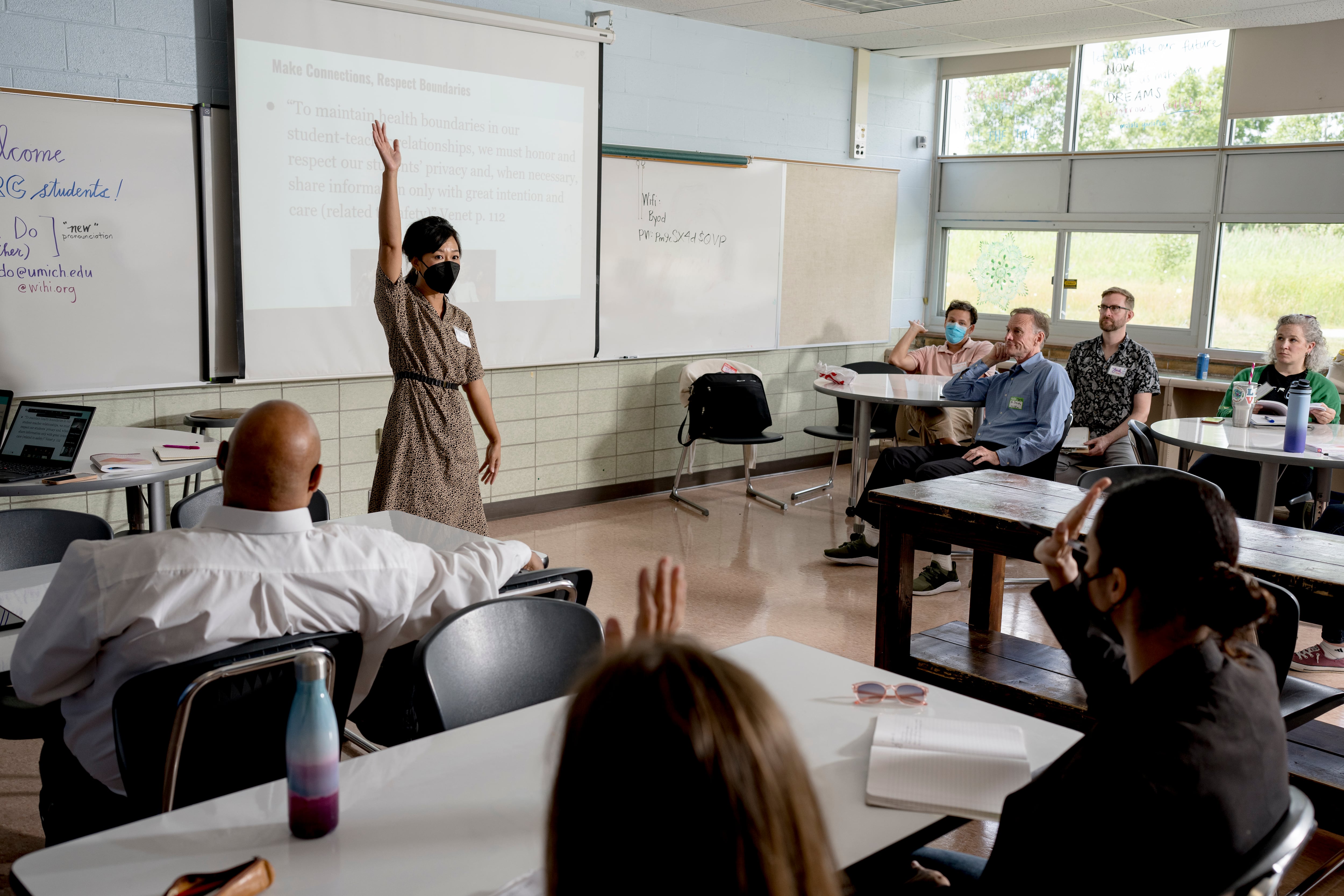After scouring the state’s pipeline to find more certified teachers, a group of Michigan education leaders are now looking to create a pipeline of their own.
Regional superintendents across the state are banding together to develop an alternate route to certification that emphasizes early on-the-job training and income opportunities for prospective teachers.
The initiative, called Talent Together, is just the latest in a series of efforts by stakeholders across the state who are working to mitigate a looming shortage of teachers, especially in areas such as special education, math and science. The efforts include initiatives to provide stipends for student teachers, shorten teacher preparation programs, offer scholarships to education majors, create programs for high school students interested in the profession, and more.
Talent Together’s goal is to provide employment in schools for teacher candidates so they can be paid while fulfilling student teaching requirements.
“The current model is when you go to a university, it’s theory, theory, theory, then practice,” during a concentrated internship period, Eric Hoppstock, superintendent of the Berrien County Regional Educational Service Agency, said during a press conference Tuesday. “We’re really promoting practice, theory, practice, theory, practice, theory” under the supervision of an experienced teacher.
That sort of path allows people to earn a living while working toward certification, said Kevin Oxley, superintendent of Jackson County Intermediate School District.
“We don’t want people to quit their lives and have to go back to school,” Oxley said. “They can’t do that, so we are going to meet people where they are and remove barriers so they can become certified.”
The program would be similar to On the Rise Academy, an alternative route program offered by Detroit Public Schools Community District that pays candidates to work in support staff roles while working toward certification. Nine other alternative route providers are approved in Michigan for teacher certification.
Talent Together expects to start enrolling students next September, but it still needs three things: funding, approval from the Michigan Department of Education, and responses to requests for proposals from universities that would provide the coursework.
Elizabeth Moje, dean of the University of Michigan School of Education, said she has been approached by Talent Together organizers and is still trying to learn more about their plans.
Talent Together could not say how much the program would cost. Organizers plan to apply for a share of $175 million the Legislature budgeted for grow-your-own programs that provide free tuition for school staff members enrolled in teacher preparation programs.
The length of the program would depend on each candidate’s background, said Jack Elsey, founder of the nonprofit Michigan Educator Workforce Initiative, which is helping design the program. It might take a year for someone who already has a bachelor’s degree in another field, for example, or several years for someone who enters without any degree, he said.
The idea for Talent Together came out of a meeting of seven regional superintendents in October. Since then, the consortium has grown to 39 of the state’s 57 regional educational service agencies, and more are expected to join. The agencies, also known as intermediate school districts, provide consolidated support to local districts. For example, they provide teacher training and coordinate early childhood, vocational, and special education programs for the districts they serve.
“Together, we are asking for the opportunity to be utilized differently,” said Kyle Mayer, superintendent of Ottawa Intermediate School District. “Imagine if Michigan, as a state, were to have an ISD hub that works in partnership with higher education and has resources to expedite the certification process for high-quality teachers.”
The group expects its program will produce hundreds of teachers over the next five years.
The Michigan Education Association, the state’s largest teachers union, is still learning about Talent Together and hopes its members will be asked to shape the program.
“It’s important that any efforts include frontline educators at the table,” said MEA spokesman Thomas Morgan.
“We are willing to work with anyone who is committed to ending the educator shortage,” he added.
At least one local superintendent is grateful for the consortium’s work.
“Ypsilanti Community Schools is facing the teacher shortage crisis,” Superintendent Alena Zachery-Ross said.
“This is real for districts, urban and rural,” she said. “We’ve been creative. We’ve been doing our recruitment and retention strategies. Even though we can try to do this on our own, the solution is bigger than us at the local level.”
Tracie Mauriello covers state education policy for Chalkbeat Detroit and Bridge Michigan. Reach her at tmauriello@chalkbeat.org.







